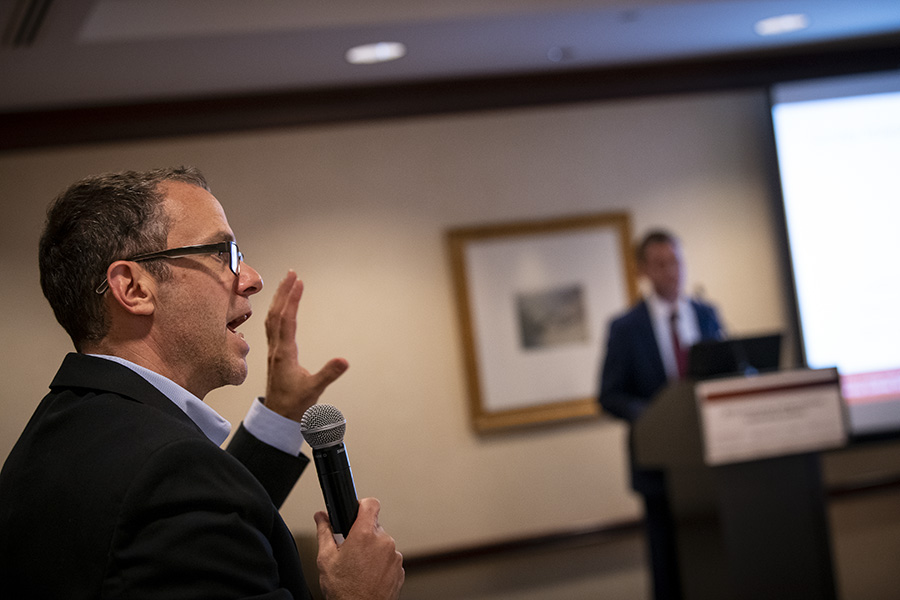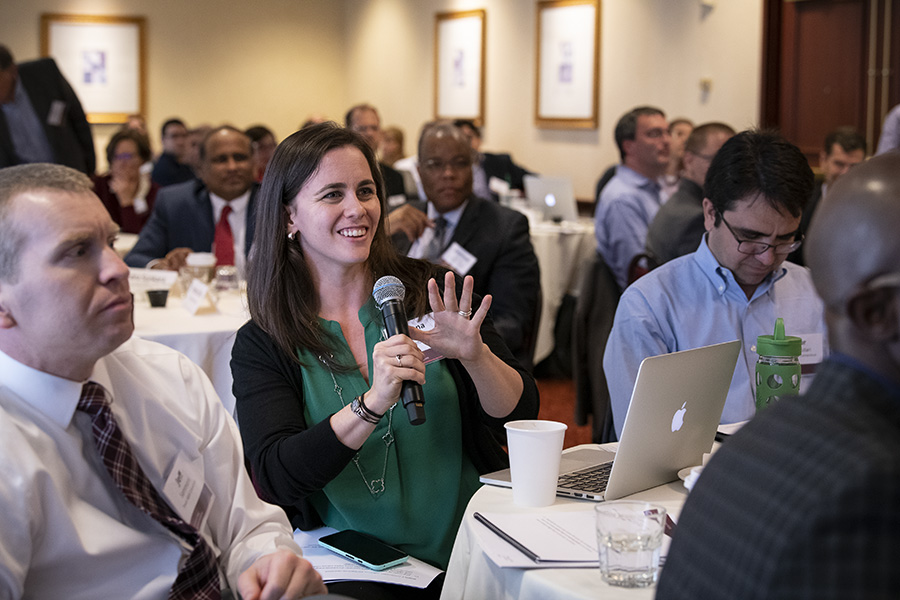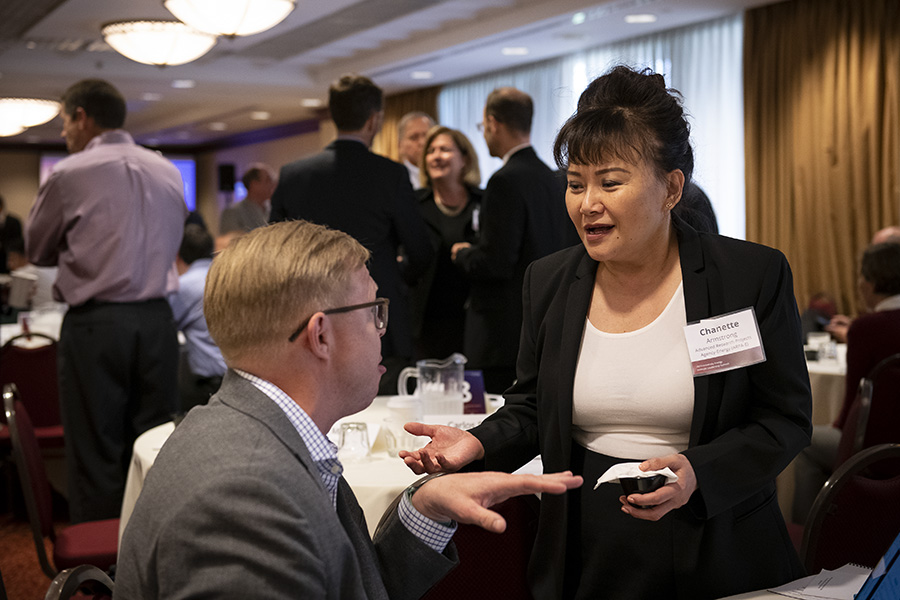University Energy Institute Summit Draws 101 National Leaders to Pittsburgh
By Rebecca Enright
& Amanda King
Media Inquiries- Scott Institute for Energy Innovation
- 412-268-6741
The Wilton E. Scott Institute for Energy Innovation at Carnegie Mellon University co-hosted the 2019 University Energy Institute Leadership Summit Sept. 25 and 26, in collaboration with the Colorado School of Mines' Payne Institute for Public Policy and Rice University's Baker Institute for Public Policy.
The summit drew 101 leaders representing more than 67 academic energy institutes and centers from 32 states across the U.S. to the Wyndham Grand Hotel in Downtown Pittsburgh, Pennsylvania. The event participants, who hailed from as far as Hawaii and Alaska, explored the possibility of creating a network of national energy institutes, and how such an organization would advance efforts in energy research, education, decarbonization strategies, innovation, public policy and advocacy.
National and local government officials as well as Carnegie Mellon leadership and alumni welcomed attendees. Officials who provided remarks included Chanette Armstrong, principal deputy director of the Department of Energy’s Advanced Research Projects Agency-Energy (ARPA-E) and a 1981 alumna of CMU’s College of Engineering; Allegheny County Executive Rich Fitzgerald, a 1981 alumnus of CMU’s College of Engineering; and CMU Provost and Chief Academic Officer James H. Garrett, Jr., a three-time CMU College of Engineering alumnus (1982, 1983, 1986).
"As a community of educators and innovators, this group gathered here has a pivotal role in preparing our world for future energy and conservation needs," said Garrett.
His remarks came on the heels of his recent trip to the 74th United Nations General Assembly where he and partners highlighted regional accomplishments to advance the UN's Sustainable Development Goals (SDGs). Garrett also announced six commitments made by CMU to advance the SDGs over the next decade.



The workshop, supported by ARPA-E and the Alfred P. Sloan Foundation, included fireside chats, roundtables, networking receptions and keynote presentations. Topics included “Energy in the Higher Education Curriculum” by Elizabeth J. Wilson, director of the Arthur L. Irving Institute for Energy and Society at Dartmouth College, and “21st Energy Justice” delivered by energy investor and climate advocate Michael Dorsey. Wilson is a 2004 alumna of CMU’s College of Engineering.
"The summit marks a crucial first step in helping avert the unfolding climate crisis by laying the foundational infrastructure to harness the tremendous intellectual capital from the heads of our nation's leading energy institutes," said Dorsey. "Those leaders hold the keys to drive a robust and informed transformation of national and global energy technology, policies and regulations toward more renewable and sustainable ends for America and beyond."
During the conference, U.S. Department of Energy's National Energy Technology Laboratory (NETL) Director Brian J. Anderson participated in a fireside chat with CMU President Emeritus, University Professor and former Scott Institute Director Jared L. Cohon on NETL's use of technology in finding ways to improve the country's energy usage for the future.
ARPA-E Associate Director for Technology-to-Market James Zahler delivered a keynote on creating new energy frontiers in the U.S. innovation ecosystem.
Morgan Bazilian, director of the Payne Institute for Public Policy, led a roundtable discussion on how to create strong, long-lasting partnerships between energy institutes in terms of geographical scope, shared assets and funding.
"The global energy landscape is changing dramatically," said Bazilian. "With the levels of uncertainty inherent in the system, as well as the enormous impacts energy has on development, security, the environment, economy and people's daily lives, it is a great time to tap into the combined wealth of knowledge and expertise in our university energy institutes."
Recommendations for future development will be published in a forthcoming report, and a website will soon launch to communicate results.
"The more than 100 participants were vocal in their support of collaboration and future networking, noting that 'anything is possible once people get to know one another,'" said Anna J. Siefken, executive director of the Scott Institute.